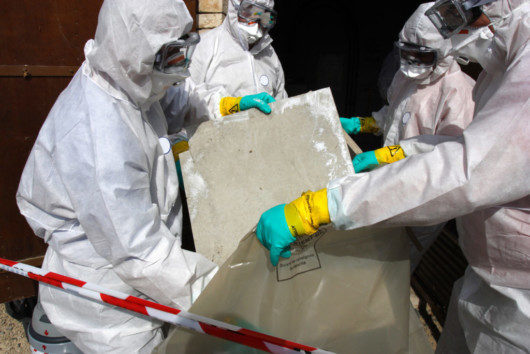At one time asbestos was a popular material for several everyday uses. However, it’s also a silent and potentially lethal material. But do you know why it’s a health and safety issue and what complications it can cause?
Fatal Accident Claims have provided some of the main reasons why asbestos is a dangerous group of minerals and the different types of compensation amounts that may be awarded for related injuries.
The Reasons Why Asbestos Is Dangerous
Asbestos is a group of minerals made up of microscopic fibres. It has widely been used for building insulation, roofing materials and water supply lines, to name but a few. It was previously recognised as a useful material due to the mineral’s poor heat conduction, excellent tensile strength and resistance to chemical attack. However, asbestos comes with several health hazards and it is now banned in most countries across the world. Despite the ban, asbestos can still be found in use from previous constructions such as old buildings.

So how exactly is asbestos dangerous? Asbestos only becomes dangerous when the materials containing it are disturbed or damaged. When this happens, asbestos fibres are released in the air and if breathed in can cause a range of serious health complications. This is why employees within the refurbishment and maintenance industries are more likely to suffer asbestos-related conditions as materials containing asbestos may inadvertently become damaged. In fact, the Health and Safety Executive reports that around 5000 workers die from asbestos-related causes each year.
There are several diseases that can be caused by asbestos. The impact is not immediately evident and as it’s usually too late by the time a diagnosis can be made, fatalities are very likely. Mesothelioma is one of the main diseases caused and almost always due to exposure to asbestos. It is a type of cancer affecting the pleura and peritoneum. Asbestos can also cause lung cancer which looks the same as cancer caused by smoking and other causes. Then there’s asbestosis, a scarring of the lung which can cause shortness of breath and potentially death. Last of all is pleural thickening where the lung thickens and swells.
How Much Compensation Can You Receive?
If you have been affected by the loss of a loved one due to an asbestos-related condition, it may be possible to pursue mesothelioma compensation after death. The employer should bare the responsibility for protecting workers from asbestos-related scenarios. There are regulations that define the steps that must be carried out before work is performed. This includes identifying if any materials contain asbestos and the amounts, preparing a risk assessment plan, and ensure all workers are informed about the location and condition of the materials containing asbestos.

The amount of a compensation a family may receive for losing a loved one can vary depending on several factors. This can include the disease type, their age, their length of suffering, if they are a smoker, and their life expectancy. For general guidance, mesothelioma may award up to £105,000, lung cancer payouts can be up to £86,000, asbestosis compensation can reach £95,000 and pleural thickening may award up to £35,000. If you feel you are deserved compensation, it’s highly recommended you seek advice from a professional solicitors firm for guidance on your specific situation.



